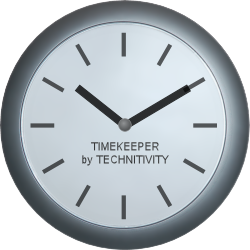It was the end of NaNoWriMo Day 8, and I somehow found myself writing last sentences of the first draft. It felt a little strange, actually, like, "is this really happening?" But as I stared at it I thought, "Well, yes, I think it is."
But something about it didn't quite feel right either. There was no, "Wow, that felt good," moment. Or, "Man, I'm so awesome! Check me out." As I searched for the source of these feelings of discontent, I found it right in front of me: this draft.
It wasn't like anything I'd ever tried before (not that I've tried this that many times). As I thought about it, I slowly realized it's not so much a first draft as it is a highly detailed, sixty-two thousand word synopsis.
In the movie Finding Forrester, Jamal and Forrester sit down at back-to-back typewriters and this scene takes place.
Jamal: What are you doing?
Forrester: I'm writing. Like you'll be, when you start punching those keys.
A moment passes. Jamal has not begun typing.
Forrester: Is there a problem?
Jamal: No. I'm just thinking.
Forrester: No thinking. That comes later. You write your first draft with your heart. You rewrite with your head. The first key to writing is to write. Not to think.
I really liked this scene because I remember thinking how spot-on it was. It's exactly the path I was following a year ago: just write, write, write and let it flow the first time around. Don't think about it. Don't worry about. This is the phase where what happens to your head in the process is more important than the words that hit the paper.
But it also got me nowhere. And this time around, without even a firm conscious decision to do so, I changed tactics. I used nothing but my head this time. When I followed heart, I ended up with one hundred and twenty three thousand meandering words that no one---not even me---would ever want to read. I made valiant attempts to fix it with my head on subsequent passes, but my heart had apparently taken that story to unrecoverable places.
Reboot.
This time I decided to nail the plot. I had to make sure, first and foremost, that the framework was solid. If I wrote the first draft with my head, I could then use my heart on later passes to really flesh it out, without the worry that I'd end up with all frilly words and no backbone.
And that's why this draft is just that: a backbone. It has lots of, "add something here" or "don't forget to stick this there". It's full of placeholders where I knew story needed to go but those words weren't necessary at the time to keep things going. It' as if I were building a skeleton. As I work my way down the backbone I might say, "Arm goes here . . . leg goes there," without the bother of wasting time building the perfect limbs. Yet limbs the body needs. I can't leave it with nothing but a backbone.
And that's why I got to the end of this "draft" feeling nothing but, "meh." Because it really does feel like only half of a traditional manuscript.
But it is a major milestone, and I'll take it. For the first time in my life I feel like I have a solid, complete, end-to-end story with some great potential---and that's saying a lot. Even with "half a manuscript," my job is really ninety percent done.
Now I just have to finish the other ninety percent.
 |
 |
 |


If writing was easy, there wouldn't be so much conflicting information on how it ought to be done.
The only way to know what works for you is to do exactly, precisely what you are doing.
Write. Evaluate. Change what you didn't like. Rinse, Repeat.
One day, when you're a superfamous author and greenhorn kids with a drawer filled with half manuscripts asks you the secret to writing, you'll be able to tell them the same frustrating, agonizing thing the big writers tell us now - you have to write million words of crap before you know enough to write good ones.
=]
Kudos to you brother, I would never be able to do what you are attempting!! This is my first time here, I love the layout!
I like pizza pit in Ames.